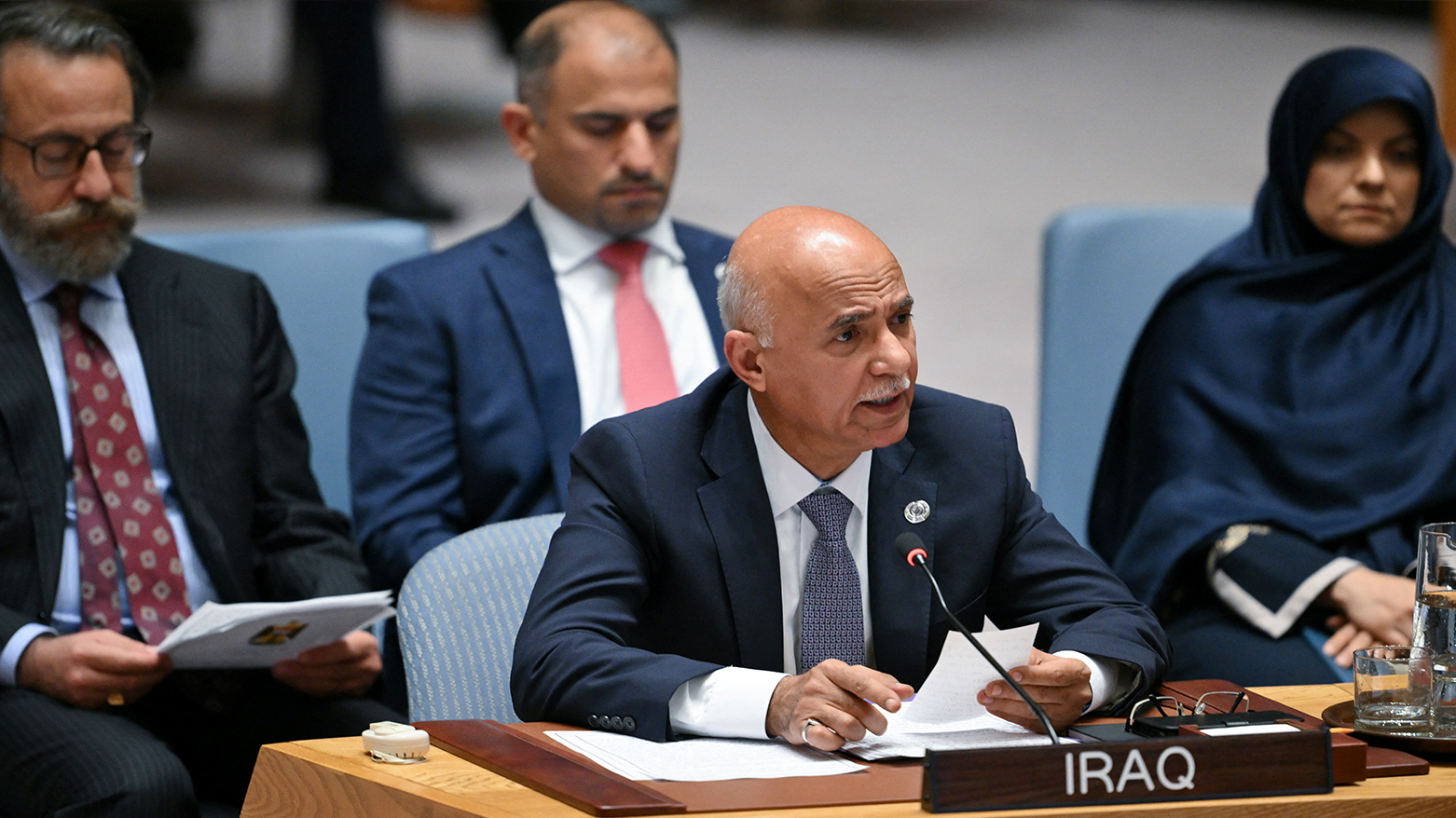Baghdad Warns of 'All-Out Regional War' Following U.S. Attack on Iranian Nuclear Sites
Iraq warns U.S. strikes on Iran risk catastrophic war, violate UN Charter. Ambassador Kazem condemns airspace violations, calls attacks on nuclear facilities dangerous precedent. Urges Security Council action to restore diplomacy and prevent regional escalation.

ERBIL (Kurdistan24) – Iraq’s Permanent Representative to the United Nations, Abbas Kazem, issued a stern warning during an emergency session of the UN Security Council, cautioning that the recent U.S. military strikes on Iran’s nuclear facilities risk igniting a catastrophic regional war and pose an unprecedented threat to global peace and security.
Speaking on behalf of Baghdad, Ambassador Kazem expressed Iraq’s “extreme concern over the accelerating and dangerous developments” in the region, particularly the “military attack against three nuclear reactors in Iran.” He emphasized that such actions constitute a direct threat to international peace and violate the foundational principles of the United Nations Charter.
A Blow to Global Stability and Diplomacy
Kazem condemned the bypassing of the Security Council in authorizing military operations, calling it “a dangerous precedent” that undermines the international rules-based order. “Targeting nuclear facilities—regardless of disagreements over their purpose—is a serious blow to the global non-proliferation regime,” he stated.
The Iraqi envoy referenced Security Council Resolution 487 and Article 4 of the Non-Proliferation Treaty (NPT), reaffirming the right of member states to pursue peaceful nuclear energy under international safeguards. He warned that such attacks could result in “catastrophic radiation leakage” with devastating environmental and humanitarian consequences for neighboring countries, including Iraq.
Violation of Iraq’s Sovereignty
Highlighting Iraq’s geographic vulnerability and strategic position, Kazem revealed that Iraq had documented repeated violations of its airspace by parties involved in the conflict. “We consider this a violation of the sovereignty of Iraq and a breach of international law,” he declared. He reiterated Baghdad’s unequivocal rejection of any use of Iraqi territory or airspace for conducting military operations.
Call for Diplomacy, Dialogue, and De-escalation
Kazem lamented the loss of momentum for a diplomatic resolution and criticized the recent escalation for “narrowing the timeline and political horizon” for peaceful negotiation. He emphasized the need to preserve the technical role of the International Atomic Energy Agency (IAEA) and called on all parties to avoid further escalation.
“Iraq stresses the need to reinstate trust in joint international action,” he told the Council. “We call for bolstering diplomatic solutions, protecting civilians, and learning from the tragedies of past regional crises.”
Appeal to the Security Council’s Authority
Concluding his remarks, the Iraqi representative called on the Security Council to reclaim its central role in managing crises and to ensure that international law and humanitarian principles are upheld. “The peoples of our region are looking to this council and expecting it to shoulder its historic and legal responsibilities at this crucial juncture,” he said.